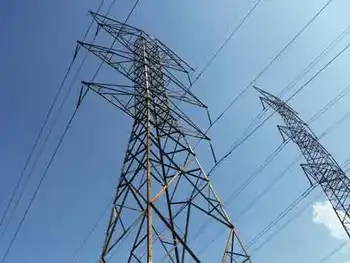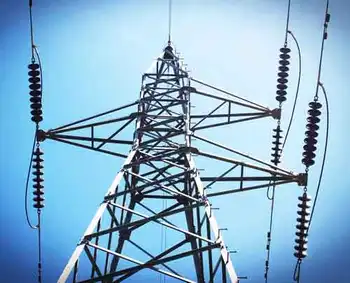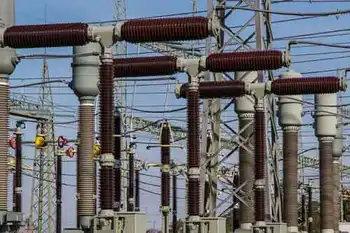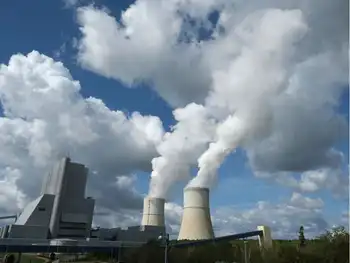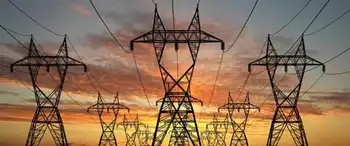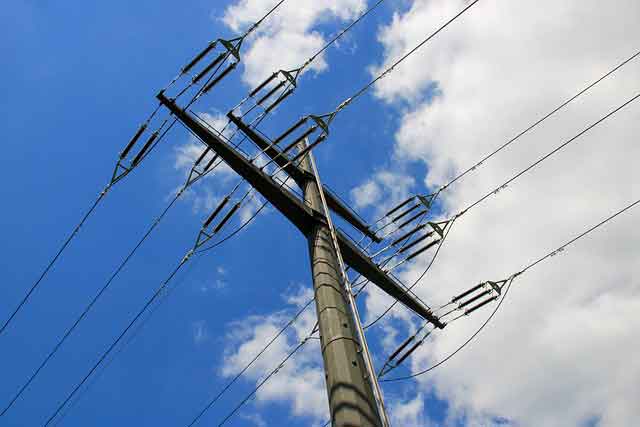Regulatory board begins hearings on coal-burning facility
By Knight Ridder Tribune
High Voltage Maintenance Training Online
Our customized live online or in‑person group training can be delivered to your staff at your location.

- Live Online
- 12 hours Instructor-led
- Group Training Available
Critics say Dominion Virginia Power has not considered alternatives, such as energy-efficiency programs and conservation, to delay the need for new power generation. Nor has the company proposed the cleanest way to burn coal, some say.
The state's handling of Dominion Virginia Power's application to build the proposed $1.8 billion plant in Wise County will have implications beyond the benefits of the plant itself, utility attorney Ed Flippen told the State Corporation Commission during opening arguments in the application case.
The case, the first under a 2007 state law that provides utilities building power plants a chance to earn extra profit, will send a message to Wall Street, determining how much investment will be made in power generation in Virginia, Flippen said.
For utility customers, the cost of building the plant would raise electric rates by up to 1.75 percent over the next three years and by 5 percent by 2012, when the plant is scheduled to go online, Flippen said.
The state commission began hearing from expert witnesses on Dominion Virginia Power's application.
The 585-megawatt plant would provide enough power to supply about 145,000 Virginia homes.
The commission heard from the public Jan. 8, when the bulk of 122 speakers expressed opposition, mostly for environmental reasons. Dominion Virginia Power and those with legal standing in the case - including environmental, competitor and consumer groups - began explaining their positions.
Kenneth Hurwitz, a lawyer representing independent power suppliers, argued that competitive bidding to find a company to build and operate the plant would provide ratepayers a better deal. That idea was echoed by Louis Monacell, a lawyer representing so e of Virginia's largest industrial customers.
Dominion Virginia Power, however, has asked that the plant application be exempted from the state commission's competitive bidding rules. The utility also argues that under terms of the 2007 law, which it helped write, it should be allowed to earn a return on shareholder equity of 11.75 percent, based on the earnings of other Southeastern utilities.
It also should be allowed, Dominion Virginia Power says, to earn for two decades an extra 2 percent bonus profit on its investment because the plant would use clean-burning technology and would be compatible with technology for capturing the greenhouse as carbon dioxide. The 2007 law allows clean-coal/carbon capture plants a chance to earn extra profit.
The carbon-capture technology has yet to be developed.
However, lawyers for the SCC staff and the Committee for Fair Utility Rates, which represents some of Dominion Virginia Power's largest industrial customers, told the commission that their witnesses will show the proper return on the plant is about 10 percent.
The commission staff, industrial customers and the attorney general's consumer counsel also contend that Dominion Virginia Power has not proved that the proposed plant would be able to capture carbon-dioxide emissions and should not be allowed the 2 percent bonus profit.
Cale Jaffe, a lawyer from the Southern Environmental Law Center in Charlottesville, said Dominion Virginia Power's application fails to account for the potential costs of future federal regulation of power-plant carbon emissions. The company also did no consider other, less costly alternatives for meeting its power needs, such as conservation.
Normally, part of the state commission's job in considering a power plant application is to determine whether the plant is in the public interest. However, in a 2004 law, the General Assembly declared that a new plant in the Virginia coalfields that would burn Virginia coal would be in the public interest.





